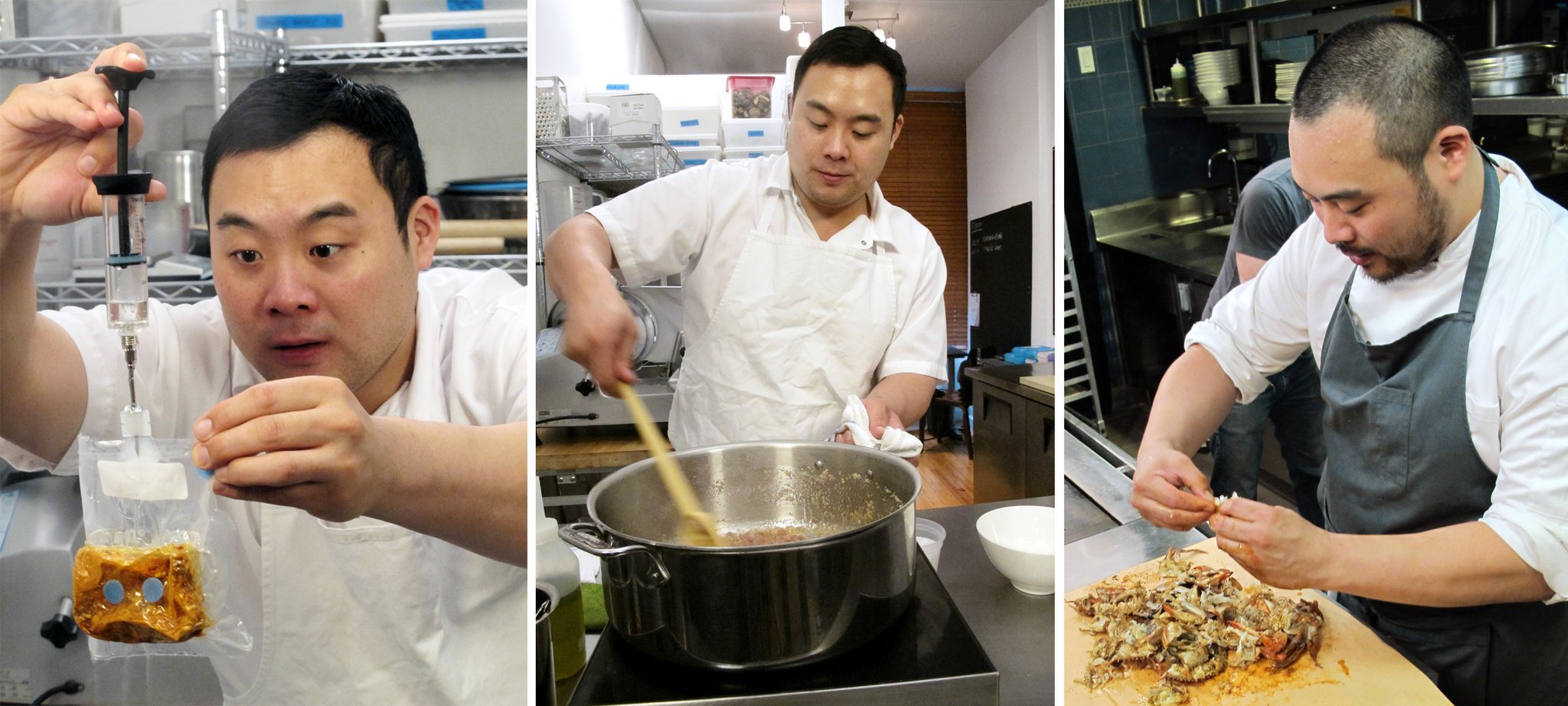For the older more metropolitan foodie generation of our parents and older cousins, David Chang may be a familiar name because of his restaurants, most notably Momofuku and NoodleBar. For us Millenials/GenZ-ers, David Chang is a bit more well-known because of his appearance in a Buzzfeed Worth It episode. (If you are still unsure, go back to the episodes “$13 BBQ Ribs Vs. $256 BBQ Ribs • Korea” and “$17 Fried Chicken Vs. $500 Fried Chicken” by Buzzfeed Worth it.)
However, the reason that I introduce this foodie to the Goucher public is because of Chang’s Netflix Original show, Ugly Delicious. The show came out in the tail end of February, and I spent one of the days of my spring break binge watching seven episodes of it (I had already seen the first episode). Now, the reason this is a solid show is not due to the influential names like Steven Yuan or Jimmy Kimmel who make guest appearances. Nor because of the mouthwatering foods like dumplings and fried chicken. But because of Chang himself and his unabashed personality as an American with a neo-metropolitan, Generation X outlook on life and food.
Unlike all other food shows on TV, Ugly Delicious does not have Chang teach the audience how to make obsessive and obscene foods. Nor is he trying the craziest of concoctions out there, giving a bad reputation to food joints and countries around the world. Instead, what Chang does is ask blunt questions about food and cultures, giving way to a thinly veiled political exploration.
To give the run-down as to why this is a political show that is not to be ignored is because when one delves deep enough into the food culture and the culture of the food, there comes the point where one must discuss racism and appropriation and wars and bloodshed. And in this day and age, when food seems to be the only thing worth bonding over, us inhabitants of the 21st century should know more about what we put into our body other than the calorie intake or dietary status. Now, as for Ugly Delicious, Chang overtly confronts the political issues. Sometimes it is addressing the unknown but omnipresent biases and racisms that plague the consumption of food. Such as why when eating Chinese food, one may feel as though MSG is destroying the body but when gorging on a bag of chips the only thing felt is that New Year’s resolution slipping away. But other times Chang outright asks political questions, giving insight as to why some people in the world think a certain way, such as when Chang talked with a Vietnamese restaurant owner who was a refugee in the 70s, over a meal with shrimp and crawfish. They discussed at one point how 40 years back the Vietnamese were fighting the KKK for their ability to work but now were hesitant when it came to wishing for a less complicated way for other refugees to go to America or other democratic nations. Chang has a way to get people to open up, be it pit masters in Tennessee or sushi masters in Japan, and while he challenges his audience’s beliefs, at no point does he try to change those ideals. However, ever so slightly he gets one to think and see things from a different point of view.
America is a melting pot. School House Rock sang about it; teachers teach about it, writers write about it. However, even with that, we have barriers to the type of foods. Everything is of a particular category, and when arguing against those put in place boxes, questions emerge. What qualifies fried chicken as authentic? What makes a pit-roasted pig BBQ but a Peking Duck not BBQ? What Chang does so honestly, is that he tastes, learns, watches, talks, and asks the questions that aren’t always asked but may be at the back of our minds.
So, while it is not the food itself that kept me listening for most of the day, I’m okay with that because the conversations that were going on about the food, cultures, and politics behind everything made the show a success.
Featured image: Chef David Chang. Photo Credit: Google Images

